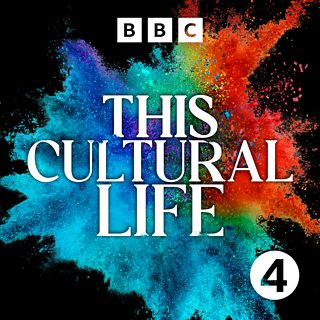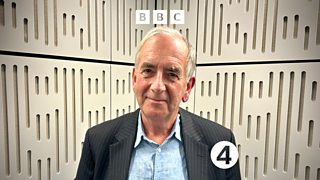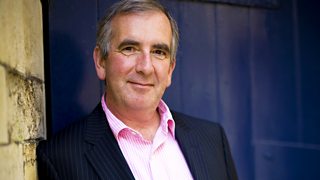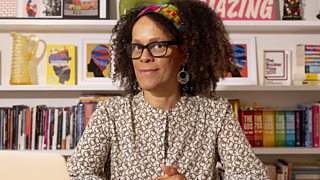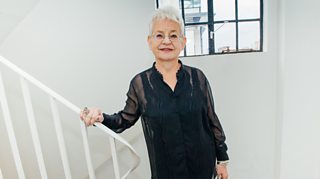Robert Harris: Eight things we learned from his This Cultural Life interview
Robert Harris is one of the UK’s most successful authors. Best known for his historical fiction, his hit novels include Fatherland, Enigma, Archangel, The Ghost, the Cicero Trilogy, and Conclave. Many of his works have been adapted for the screen, including 2024’s Conclave, which was nominated for 12 BAFTAs. Harris was co-screenwriter on two adaptations of his books, The Ghostwriter and An Officer and a Spy.
Speaking to John Wilson on This Cultural Life, Harris discusses his childhood passion for history, why he thinks writing about the past is the lazy option, and why he starts novels in January. Here are eight things we learned.
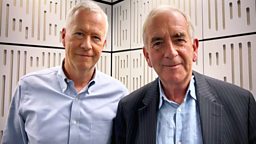
1. He knew he wanted to be a writer from the age of eight
Harris was born in Nottingham in 1957. He thinks he got his love of print from his dad. “He was a printer and my mother was a full-time housewife,” says Harris. “One of my earliest memories is that [my dad] used to go in [to the print factory] on a Saturday morning for overtime, and that’s when he’d take me.” He remembers “the thunder of the presses and smell of the ink and paper… I think it was quite a formative experience.”
By the age of eight or nine, he knew he wanted to be a writer. “I remember sitting in a classroom… and thinking, ‘This is what I want to do.’ I used to… draw maps of imaginary countries… I would do imaginary newspapers… I’ve been on a fairly straight, predictable trajectory.”
2. He was always fascinated by history
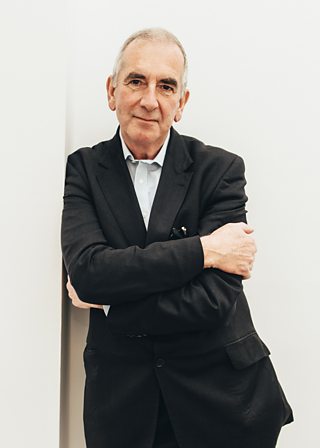
Harris was always interested in the past. “I read a lot of history completely outside the syllabus,” he says. “History was very much the thing I was most interested in.” When he left university, he became a journalist. One of his assignments in the 1980s was covering the case of the fake Hitler diaries. He wrote a non-fiction book, Selling Hitler, about the case, in 1986.
It was Hitler’s Table Talks, a book about Hitler’s plans for Germany if he won the war, that guided Harris toward fiction. “I thought, ‘This would make a wonderful non-fiction book, wouldn’t it – what the world might have looked like,” he says. “The more I pondered that, the more I realised I couldn’t write it except as a work of fiction, and I suddenly found myself writing a novel.” That became his first novel, Fatherland.
3. His first novel made him more money than his entire journalism career
Fatherland was an instant bestseller. It was such a hit that it allowed Harris to quit his journalism career immediately.
“The American hardcover sold for more money – and I was 34 at the time – than I had made in my entire career… It would have been insane not to give up journalism and try to write another novel.”
4. He had to lie down after writing his first page
Sitting down to write Fatherland, Harris said he had no idea what he was doing. “I started writing it, I remember, on a Saturday afternoon,” he says. “It’s exactly as the novel opens, in a suburb of Berlin, and a lake where a body is floating. A policeman arrives and fishes the body out and it’s only got one leg. I wrote it that Saturday afternoon and it was so exciting I had to go and lie down. I was dizzy with it, because I’d only ever written non-fiction. I thought, ‘I can make anything up here!’ It was so thrilling. Those few paragraphs [I wrote that day] remain the opening of that book.”
5. Starting a novel without an ending is like starting a joke without a punchline
When he began writing Fatherland, Harris had no clear idea of where the story would go. That soon became a problem: “I suddenly realised I didn’t know why these people were in the room and they didn’t know [either]. The whole thing seized, fizzled out, and I put it to one side.”
When he came back to it, months later, he changed his way of working. “I plotted it out to the end and from that point on I was on my way… You have to know pretty well how your story’s going to end. You have to know the shape of the novel, otherwise it’s like embarking on telling a joke without knowing the punchline.”
6. Historical fiction is, he says, the lazy option
I鈥檓 too lazy to travel a lot, so I visit eras. I think that鈥檚 the best way of putting it.Robert Harris on finding material
Asked how he generates ideas, Harris says, “I’ve been thinking about this a lot. For novelists – take Graham Greene or Somerset Maugham – after a while you have to go in search of new material… They used to go travelling – Haiti, Indochina, Malaysia. They would turn up somewhere with a notebook, spend time there and go back with stories, ideas and inspiration. I’m too lazy to travel a lot, so I visit eras. I think that’s the best way of putting it.”
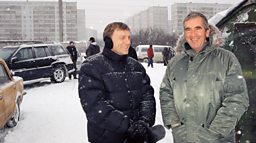
7. He likes to start a new book in January
I like to get into a state of mild panic.Harris on his writing technique
After 15 novels, Harris has a clear routine: “Begin a novel in January, try to write about 800 words a day, often six or seven days a week… At the end of six months, you’ll have 120,000 words. As you write, the days get longer.” He likes a deadline too. “Whenever I was writing a column as a journalist, the best ones were always the ones where I sat with no idea in my head, in a panic because it had to be in the paper in four or five hours. So I like to get into a state of mild panic.”
8. It’s writing or nothing
“My wife says I’m an existential writer,” says Harris. “By which she means I exist to write and have done for 60 years... I can’t imagine an existence in which I didn’t, for a chunk of the day, write. For me, it’s just natural. I don’t have any hobbies – a terrible thing to admit – so what would I do otherwise? I’m not interested in gardening. Golf? What an appalling idea. It’s this or nothing.”
More from 成人快手 Radio 4
-
![]()
This Cultural Life: Robert Harris
Listen to the full interview on 成人快手 Sounds.
-
![]()
Desert Island Discs: Robert Harris
Writer Robert Harris joins Kirsty Young on Desert Island Discs.
-
![]()
Bernardine Evaristo: Nine things we learned from her This Cultural Life interview
The Booker Prize winner on overcoming bad relationships and her key technique for success.
-
![]()
Jacqueline Wilson: Nine things we learned from her This Cultural Life interview
Writing a sequel to The Enchanted Wood, reading as a child and her mother's secret gun.
